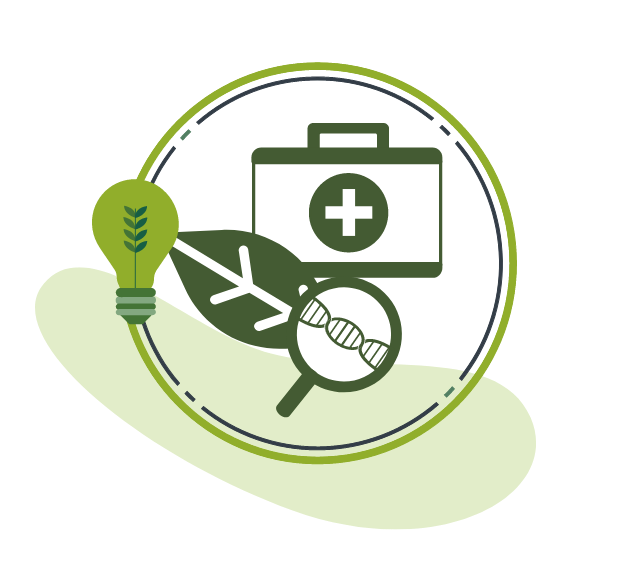You need to confirm you are over the age of 25 and living in Scotland
Life and chemical sciences
Life and chemical sciences will make a huge contribution as we move towards net zero. Scotland is a world leader in areas such as pharmaceutical innovation, health technologies, animal health, agritech and aquaculture.

It's so important to do something you're passionate about
Eve is Research and Innovation Director at Celtic Renewables. She started out doing an access course to get into university, and now has a PhD. After studying microbiology and industrial biotechnology, she did her doctoral studies while working.
Having always cared about the environment, Eve loves being able to work at something she's passionate about.
Watch Eve's video to learn more about her journey.
As of 2021, both areas have experienced growth which is expected to continue in the future.
Life and chemical sciences sectors provide high quality jobs in a range of areas. Both sectors are very diverse in terms of technology and size of company. This means they need an equally diverse workforce with a range of different skillsets. They’re looking for people like you to help make a difference.
Sustainable healthcare
Life sciences has lots of job opportunities as it aims to advance the delivery of sustainable healthcare. Digital remote-care, innovative medicines and patient monitoring are all areas of growth.
Industrial biotechnology
This vital sub-sector uses plant and waste-based resources rather than traditional chemicals. The industry offers a range of opportunities in areas such as green energy, medicines and food packaging.
All life and chemical sciences roles aim to contribute towards net zero. Fields such as biochemistry, synthetic biology and microbial physiology will definitely need green workers.
Life and chemical sciences and the circular economy
Industrial biotechnology is integral as Scotland drives towards a circular economy. Bio-refining means waste from bio-based sectors is converted into valuable materials. By-products from industries such as farming or food and drink can become bio-based chemicals and proteins.
Bio-based food, feed and fuel are currently in development. This means the industry will need more bio-based research, development and manufacturing workers. To land these roles, you'll need skills in areas like biotechnology or bioengineering.
Are you interested? Let’s look at how you can get involved in the life and chemical sciences industry.
Apprenticeships
A Scientific Technologies Foundation Apprenticeship is the perfect way to get started. You can gain a qualification alongside real workplace experience while at school.
Modern Apprenticeships allow you to earn while you learn. These are available in Life Sciences and Related Sciences or Process Manufacturing.
College and university
Studying at college or university is also a great way into a career in life and chemical sciences.
Scotland’s universities and colleges offer lots of relevant courses. These range from NC, HNC and HND through to undergraduate and postgraduate qualifications.
IBioIC has developed training programmes at PhD, MSc and HND level. This is to ensure the industry has a skilled workforce to innovate in Scotland.
In cooperation with Skills Development Scotland, SULSA is developing training courses. These will help new entrants and career changers gain laboratory and manufacturing skills. The courses will be funded by the National Transition Training Fund.
Further information
You can learn more on the IBioIC website. It will educate you on the role life and chemical sciences is going to play as Scotland strives for net zero.
Explore other industries
Engineering
Technological innovations that lower energy loss, reduce waste and improve the management of resources will help us meet net zero.
Construction and built environment
Improving the energy efficiency of buildings is essential to realising the net zero target for Scotland.
Nature
Scotland’s nature-based industries represent the second largest source of net emissions after transport - find out how green energy resources can help.
